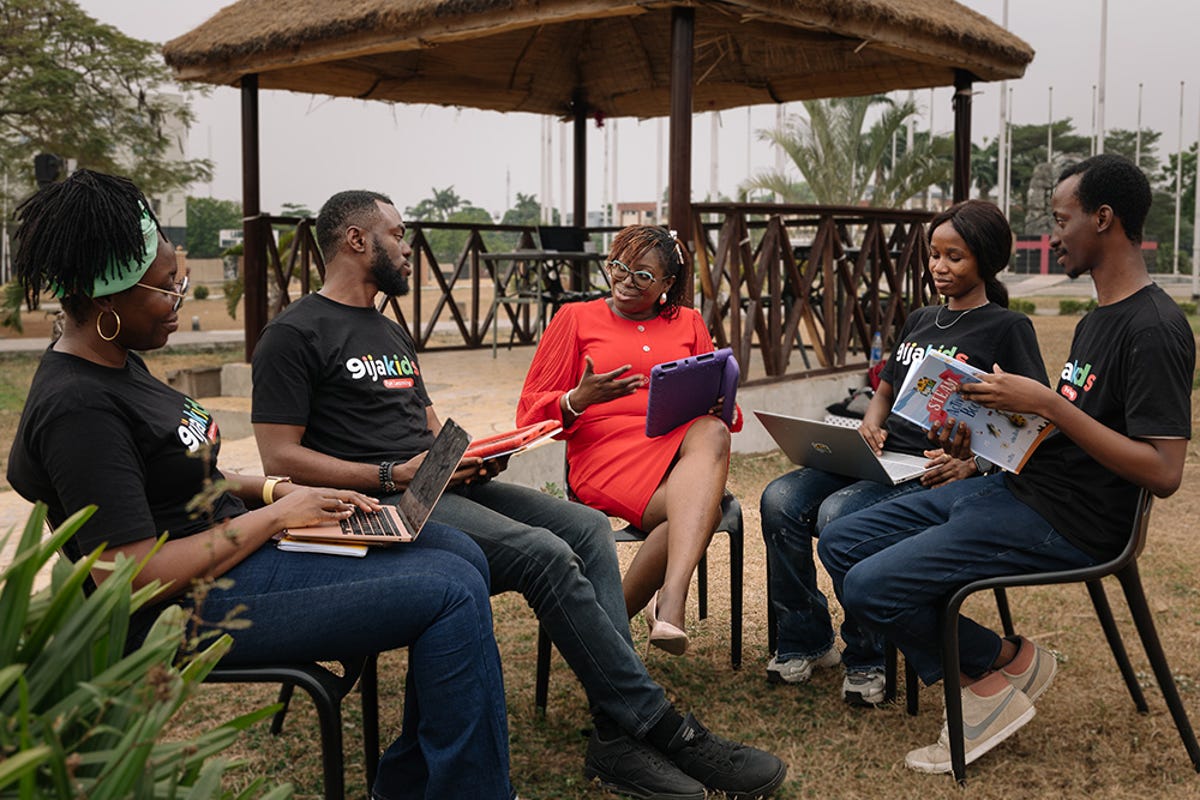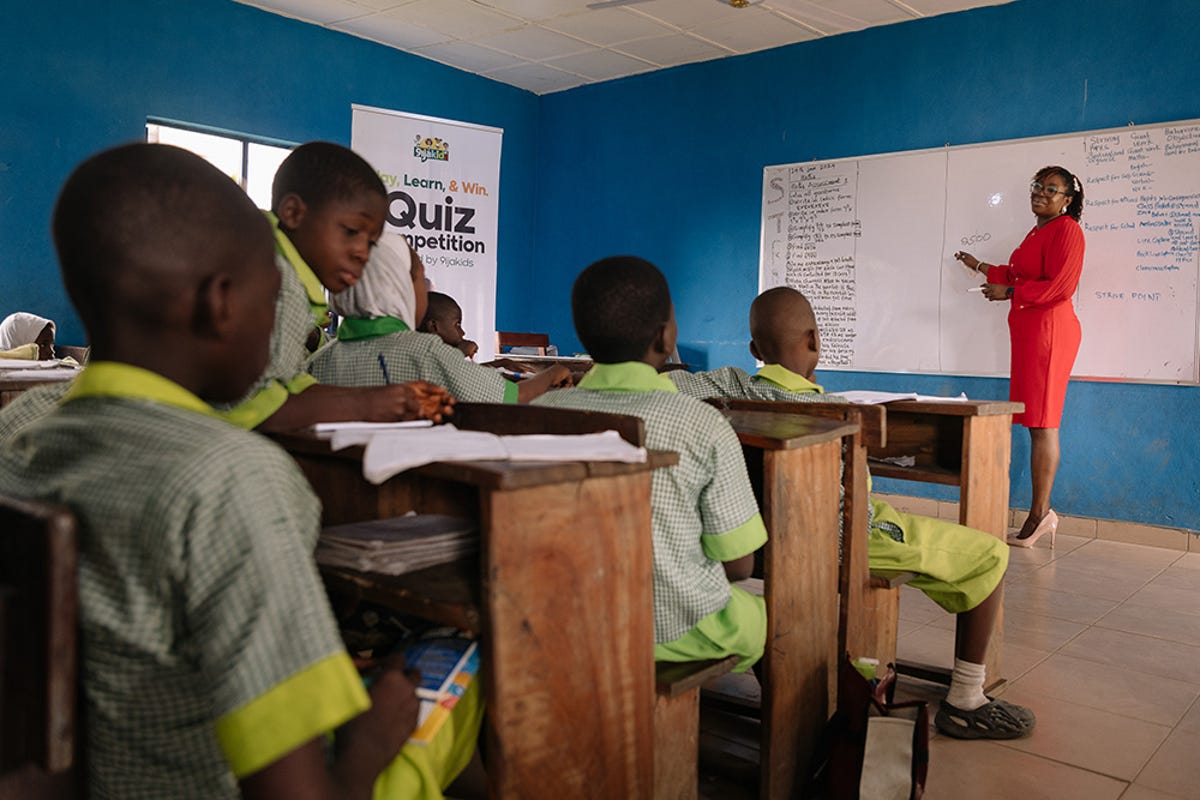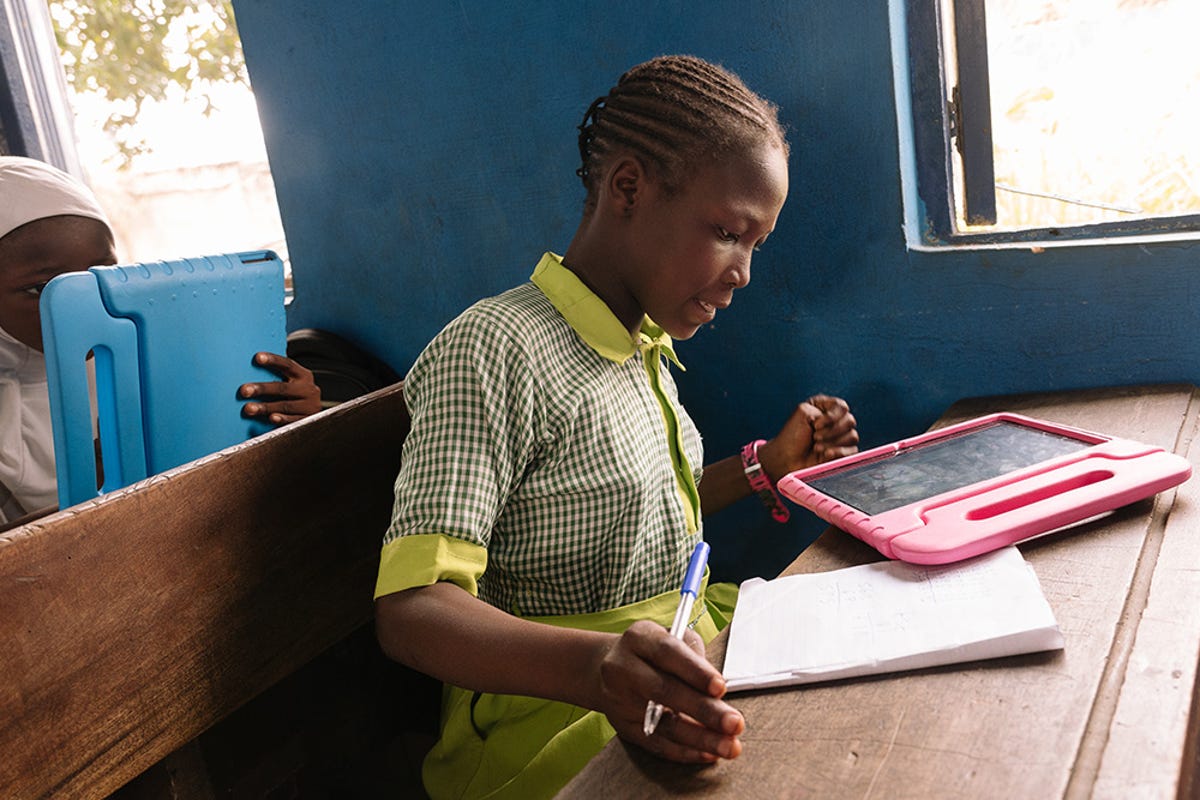Fellow Portrait
Titi Adewusi
9ijakids

9ijakids is an affordable online learning tool that uses interactive quizzes and games to help reinforce what children learn in school.
Anglophone and Lusophone Africa
Nigeria
Fellow
2024
Updated March 2024
Nigerian parents search for high-quality educational materials
More than 24 million children in Nigeria attend public primary schools. However, the quality of instruction varies widely. Many kids lack access to textbooks and notebooks that would allow them to practice at home what they learn in the classroom. “Practice is critical to mastery,” says 9ijakids founder Titi Adewusi.
As a result, parents often try to supplement their children’s education with after-school classes, private tutors, and additional materials—which is difficult in a country where the average monthly income is less than US$150 per month. “Even with supplementary classes and private tutors, parents have no assurance that their children will have access to the quality education that’s fundamental to alleviating poverty,” Titi says.
I really want children to have the opportunity for a better life by being financially literate, knowing how to use technology, and knowing how to solve problems.

Games and quizzes keep young learners motivated
No matter their income, all parents struggle at times to keep their children motivated in school, a concern that Titi Adewusi encountered firsthand with her own son. “My son was one of those people who just wasn’t interested in learning,” she recalls.
The idea for 9ijakids (pronounced “nine-ja kids”) came to her when she discovered she could motivate her son to do homework by turning it into a game. “He was my driving force for starting 9ijakids.”
Harnessing her background in management consulting and volunteer teaching, Titi developed the 9ijakids platform with two of her sisters, who were seasoned experts in curriculum development, technology, and business.
“We knew we were onto something when my son came home from school and asked, ‘What’s the next game on? Can you do one on fractions?’” she says. “It showed me he wanted to succeed, and that’s when we really got excited.”
For less than US$1 per month, children of low-income parents can use the 9ijakids website or app to practice skills in subjects like math, English, and science through self-paced quizzes and games aligned to the national primary school curriculum. Students get instant feedback on their performance and the platform recommends additional games that will help them improve. “Our platform uses the power of games to motivate and captivate young learners,” Titi says. “By promoting regular practice, we help children deepen their understanding and enhance their skills.”
9ijakids has partnerships with two of the largest Nigerian telecommunications operators, MTN and Glo, which allows children to access 9ijakids games using their families’ airtime. This removes a barrier for families who lack other payment methods, such as credit cards or bank accounts.
The first challenge was changing mindsets around learning. People thought that learning only happened in the classroom or textbooks. They felt that playing games wasn’t learning.

Schools are improving attendance and learning outcomes
Since 2020, more than 150,000 children have accessed games on 9ijakids to learn everything from math and science to financial literacy. Today, the platform has more than 50,000 subscribers and the company has rolled out more than 300 games across various age groups and subjects.
“One school principal told us that there’s increased attendance and better learning outcomes on the days kids know that we’re bringing our games in,” Titi says. “That’s what drives us—the idea that we can make a difference when children are still young.”
Our vision is to bridge the educational gap in Nigeria by ensuring that every child, regardless of their economic background, has the opportunity to excel and acquire the skills they need to have a brighter future.





